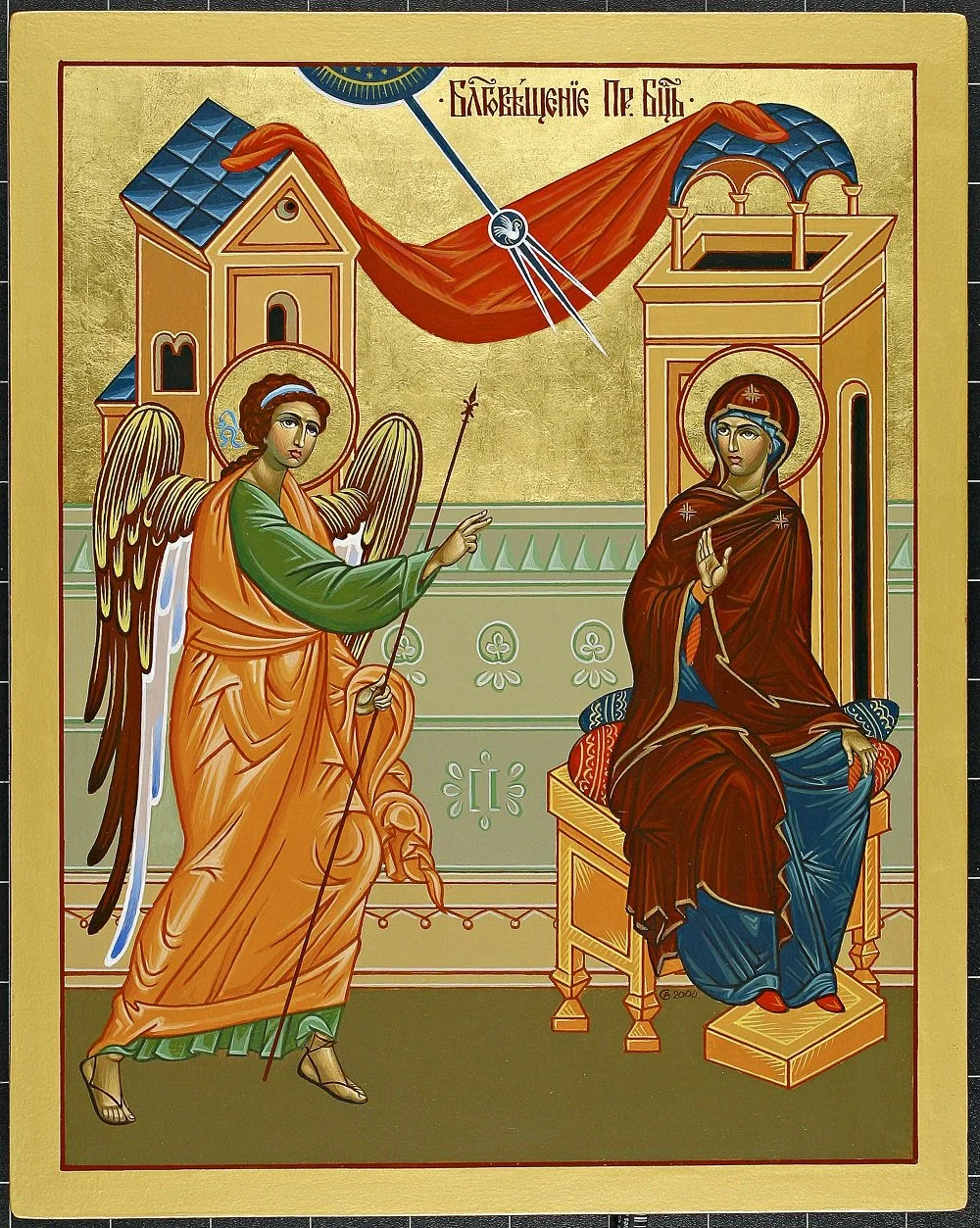Storyteller | That's What She Said - December 4, 2022
Saint Luke’s account of the first Advent and Christmas is well-known in and out of the church. It is a story that has been read, sung, and talked about for generations. There is much to be said about these holy words.
Beginning with the announcement to Zechariah and Elizabeth that they will welcome a son into the world who will then prepare the way for the Son of Man, and culminating with the birth of Jesus and the shepherds watching their flocks by night, and would venture to say that if 1 Corinthians 13 is the preferred reading for weddings (but more appropriate for a funeral, but that’s a sermon for another day) then Luke 1 and 2 are the preferred readings for Advent and Christmas. If the readings are good enough for Linus and Charles Schultz, they’re good enough for us.
We are in the second act of the story.
Mary, engaged to Joseph, is greeted by the Angel Gabriel, who says, “Greetings, favored one! The Lord is with you.”[i] “You will conceive in your womb and bear a son, and you will name him Jesus. He will be great and will be called the Son of the Most High, and the Lord God will give to him the throne of his ancestor David. He will reign over the house of Jacob forever, and of his kingdom there will be no end.”[ii]
God enters our lives in the most spectacular ways, disrupting our ordinary routines in the best possible ways. Susan Robb, the author of The Angels of Christmas – Hearing God’s Voice in Advent, notes that in last week’s Gospel lesson, the Angel Gabriel visited Zechariah “in the midst of his work, in the day-to-day routine of priestly responsibilities, although in the most spectacular and holy of places.” And Mary is no different. Catholic tradition suggests Mary was drawing water from a well. In the middle of her daily routine, the divine disrupter goes to work.
Gabriel tells Mary that through her, the Savior of the world will begin his reconciliation and healing work. And Mary’s response?
“Here am I, the servant of the Lord; let it be with me according to your word.”[iii]
“Let it be.”
That’s what she said.
Last Sunday, Pastor Sara suggested that pastors tend to talk more than they should. She said, “pastors can talk a lot.” Then, she turned and looked at me (I assume she did the same to Pastor Jeff). Pastor Sara is not wrong. I host a podcast where the show's premise is to talk about faith without using stained-glass language. Preaching and teaching are a large part of what I do as a pastor. And, before most meetings I attend with Pastor Sara, I send her a text message saying I will do my best not to talk more than I should during the meeting.
Mary does not have my lines of dialogue in our gospels.
Mary is front and center in this morning’s lesson. She has the lead role during Advent and, at Christmas, transitions to the lead supporting actor. During Jesus’ ministry, she is quoted in the Gospel of John at the Wedding in Cana, noticing the party was in trouble. “They have no wine.”[iv]
Then, as Jesus is preparing to draw his last breaths, Mary’s presence is noted at the base of the cross. Her words are not recorded as Jesus says, “Woman, here is your son,”[v] gesturing to John.
In the gospels and the New Testament, the majority of the Christian Bible is written by men, using male voices.
It was noted this past week in our Wednesday Night Advent study that a not so good by-product of the Protestant Reformation is that we – Protestants – fail to give Mary the airtime she deserves.
So, yes, pastors talk a lot, and I will add the point that male pastors tend to be guiltier than others. And if not for women, we would not have the good news that the tomb was empty on Easter. Female preachers, pastors, and teachers are indispensable in the church.
I was thinking about Pastor Sara’s words this week as I reflected on our gospel lesson, and I decided to look to pastors and theologians who are not male. Pastors like Susan Robb and Fleming Rutledge because if we are to heed the words of the holy scriptures, then there are times when people like me, people who are privileged in the empire, we need to listen.
“Let it be with me according to your word.”[vi]
“Let it be.”
Mary spoke three words in response to the Angel Gabriel.
“Mary, the in-breaking of the Kingdom of God is at hand, and through you the Savior of the world will take center stage. Mary, through you God’s grand story of salvation will take shape”.
“Let it be.”
That’s what she said.
“Let it be with me according to” the will of God, according to the grand plans of God’s earth-shaking in-breaking. “Let it be with me according to” the Creator of Heaven and Earth.
That’s what she said.
Rev. Rutledge notes that at the first Advent God, through Mary, is moving toward us. Rev. Rutledge wrote Mary’s response is “not about human hopes and human wishes and human dreams, but about God. What is happening at Christmas is not of man but from God.”[vii]
The salvific work of God is not dependent of humanity for its completion. What happened in the first Advent, at Christmas, and what will happen at the second Advent is from God.
Rev. Rutledge wrote, “The mercy and grace of God do not depend on human virtue for its fulfillment. The mystery of the Advent season lies precisely in its location as it is between the now of human failure and disappointment and the not-yet of God’s coming kingdom.” [viii]
With Mary’s response, “Let it be,” Mary joins the ranks of the who’s who of the Hebrew Bible.
Jacob in Genesis when he is approached by an angel in a dream and is told to go to Egypt.
Moses in Exodus when he was called by God through a burning bush.
The prophet Samuel was called by God while lying in the temple.
While the prophet Isaiah was called and sent, responding with, “Here I am, Lord.”
If you had been reading the story from the beginning with Genesis 1 and came to Luke 1 to find Mary saying, “Let it be,” you might scratch your head and wonder what happened to shift the central focus of God using men to accomplish God’s will. But when we stop and listen to what Mary said, we find that finding favor with God has nothing to do with the favor we find in society. God’s favor upon Mary, God’s presence with Mary through Gabriel and in her womb, is a gift from God. Mary is favored not because of her status in society but because God is with her; in the same way, you are favored not because of what you’ve done or left undone. You are favored because of the faithfulness of God.
With three words, “Let it be,” Mary reveals to the world that the way things are is not how things will be when the will of God is followed when the Kingdom of God is fully realized.
Let it be.
That’s what she said.
And in Mary’s response, it’s not that God went to work; rather, Mary became a part of what God was already doing. The same is true for us. God is not waiting for humanity to begin God’s world. Each of us, during Advent and in the ordinariness of our lives, is invited, just as Mary and Elizabeth were, to be part of the story being told by God. The story says you are not who your sin says you are. You are beloved. You are favored. So, let it be.






